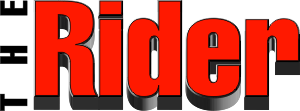
Finding a program that fits you and your horse can be a daunting process!
Jen: As a coach the very first question I ask someone who comes to me as a potential client is: “What are your goals?” I listen in to what they are telling me; I want to hear both their short and long-term goals. If they don’t articulate them, then I ask them specifically. Oftentimes, people don’t think short or long term and have a vague idea of what they want.
Being specific on both the short- and long-term goals simplifies what we will work on today, and at the same time helps us keep an eye on our vision of the future goals. Doing this exercise is exciting and realistic for both my clients and me as a coach!

A major factor to consider in the equation is the client’s level of riding. As a team, my client and I need to be realistic to curate a program where the client’s riding skills can be improved where necessary. This then gives them the skill set and the confidence to constantly develop the building blocks for better horsemanship.
 Having open communication about the process of any program is key! If someone doesn’t understand a certain coaching aspect (not everyone learns the same way) a good coach in a program can explain theories more than one way to address their client’s learning skills.
Having open communication about the process of any program is key! If someone doesn’t understand a certain coaching aspect (not everyone learns the same way) a good coach in a program can explain theories more than one way to address their client’s learning skills.
I also recommend watching someone teach to see if you like their style. Are their horses happy, willing and confident in their jobs? Taking the time to do this is a good investment in a healthy equine working relationship.
 Sharon: one of the key reasons I like Jen’s program is that she is coaching you to learn how to self-diagnose issues (either yours or the horse’s) and not to be 100% dependant on her – but to be able to do it yourself when you ride alone. Some coaches seem to build in dependency upon them, so that the client cannot do anything alone and therefore; costing the client more money in lessons.
Sharon: one of the key reasons I like Jen’s program is that she is coaching you to learn how to self-diagnose issues (either yours or the horse’s) and not to be 100% dependant on her – but to be able to do it yourself when you ride alone. Some coaches seem to build in dependency upon them, so that the client cannot do anything alone and therefore; costing the client more money in lessons.
This is not to say any coach is capable of training their clients to be completely self-sufficient, few non-pro riders should be egotistical to the degree they think they don’t need a coach. Let’s face it, even the top level athletes still have coaches so why would we think we don’t need coaching!
 As Jen says, go watch someone coach their clients and observe what they pay attention to and how they coach each individual. Is the coach a broken record barking the same thing to all clients with no context? Or does the client treat each client and horse as an individual team? Just like any relationship in life, the one between the rider and coach needs to be routed in trust, respect and open communication. You don’t necessarily have to like the person if they help you get the results you’re looking for, but it certainly helps!
As Jen says, go watch someone coach their clients and observe what they pay attention to and how they coach each individual. Is the coach a broken record barking the same thing to all clients with no context? Or does the client treat each client and horse as an individual team? Just like any relationship in life, the one between the rider and coach needs to be routed in trust, respect and open communication. You don’t necessarily have to like the person if they help you get the results you’re looking for, but it certainly helps!
Pro and Non-Pro articles written by Jen Jonas of Jonas Performance Horses (Pro) and Sharon Jones of Be A Better You (Non-Pro). Together, they are J&J Reining Inc. Both Jen and Sharon are believers in continual learning – if you’re not learning you’re not growing.


